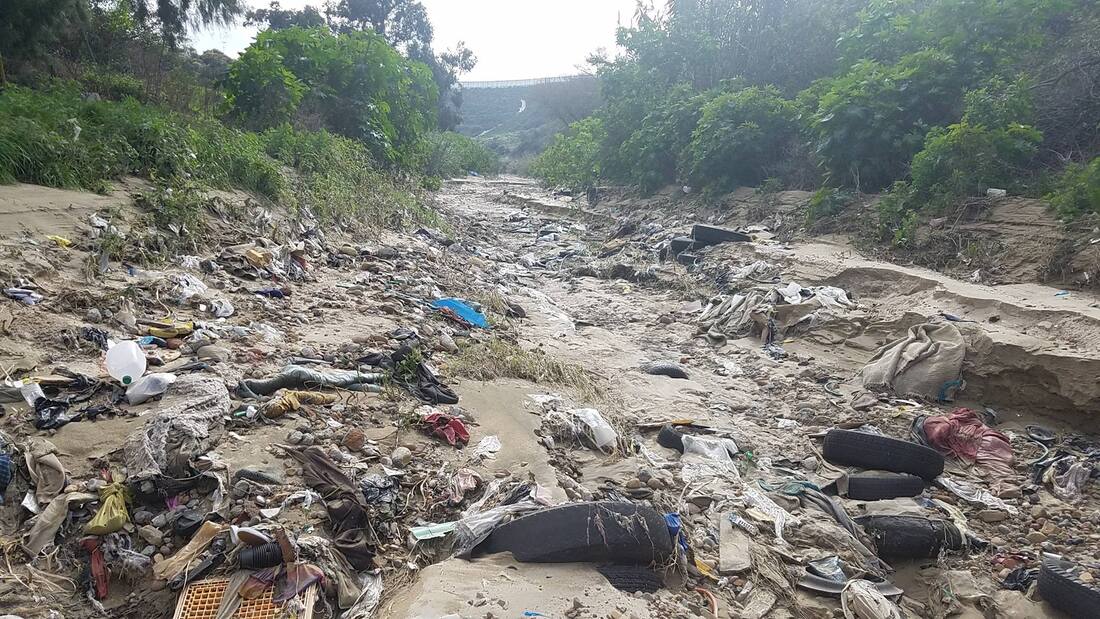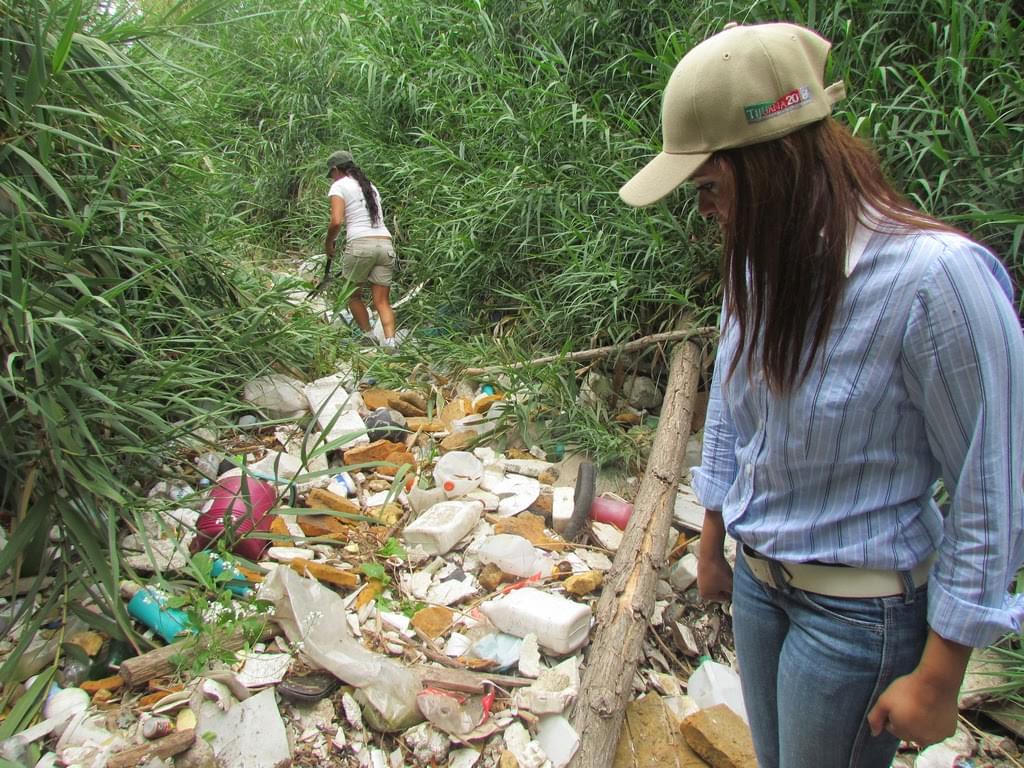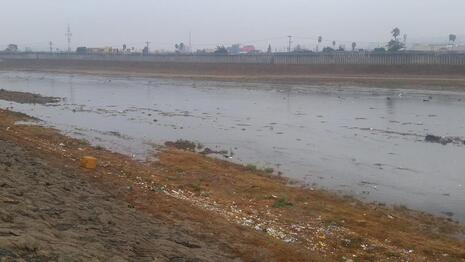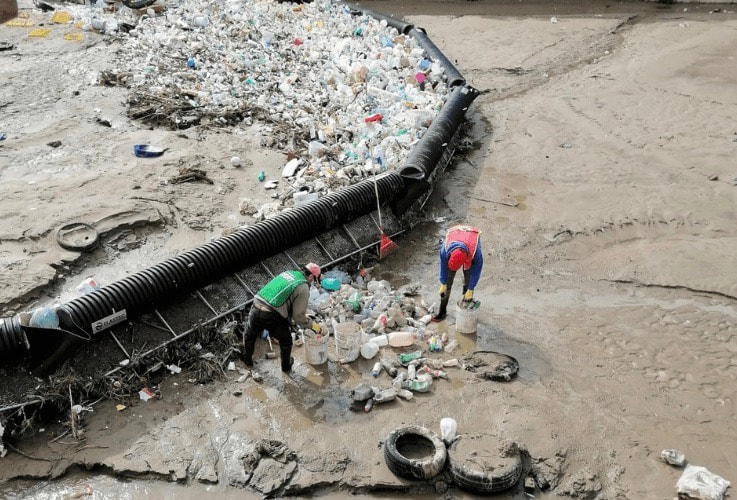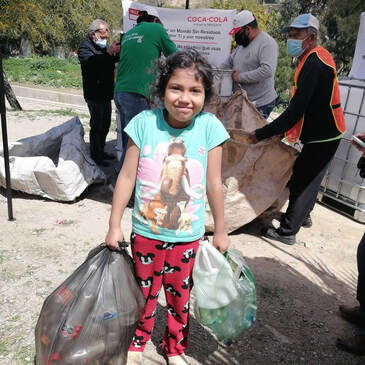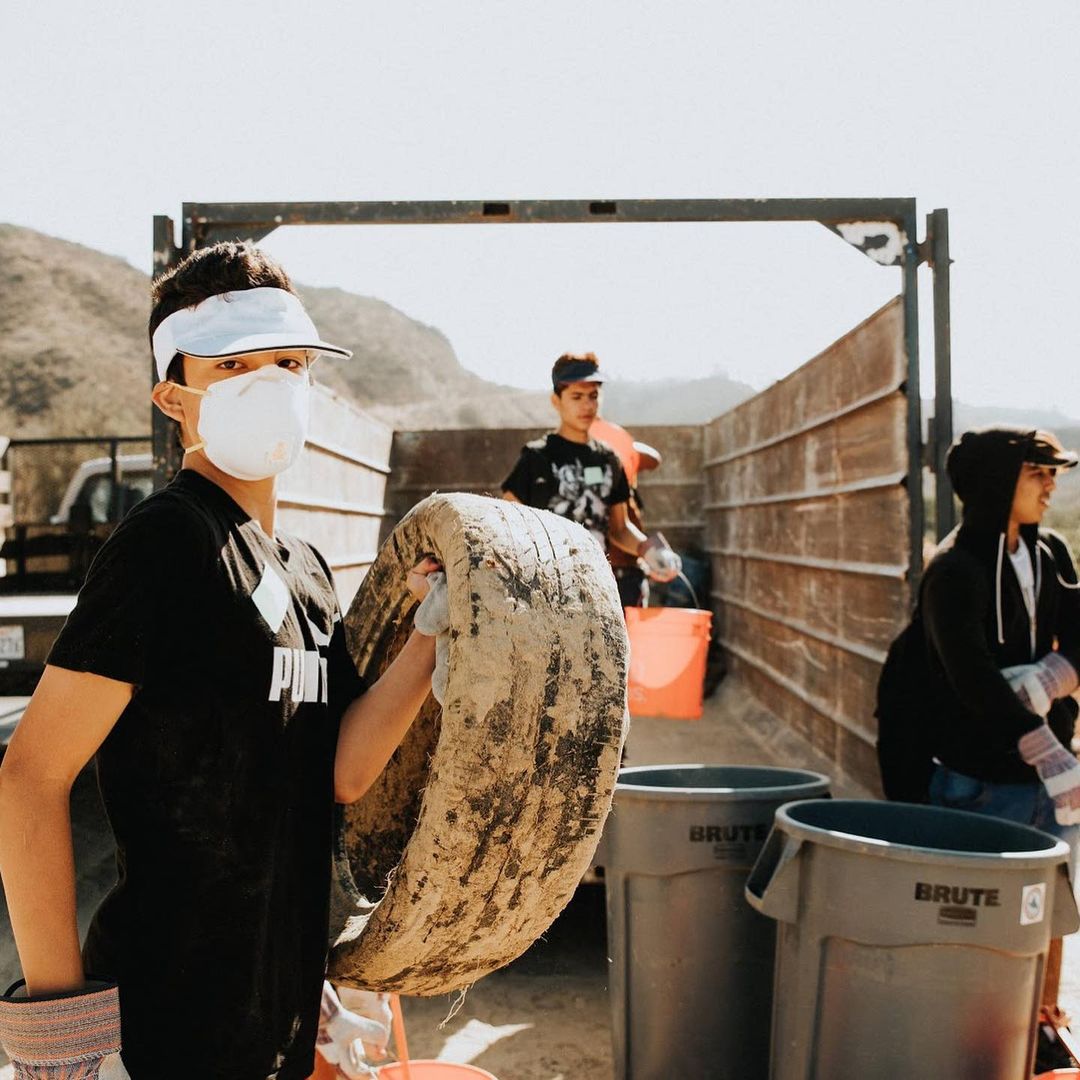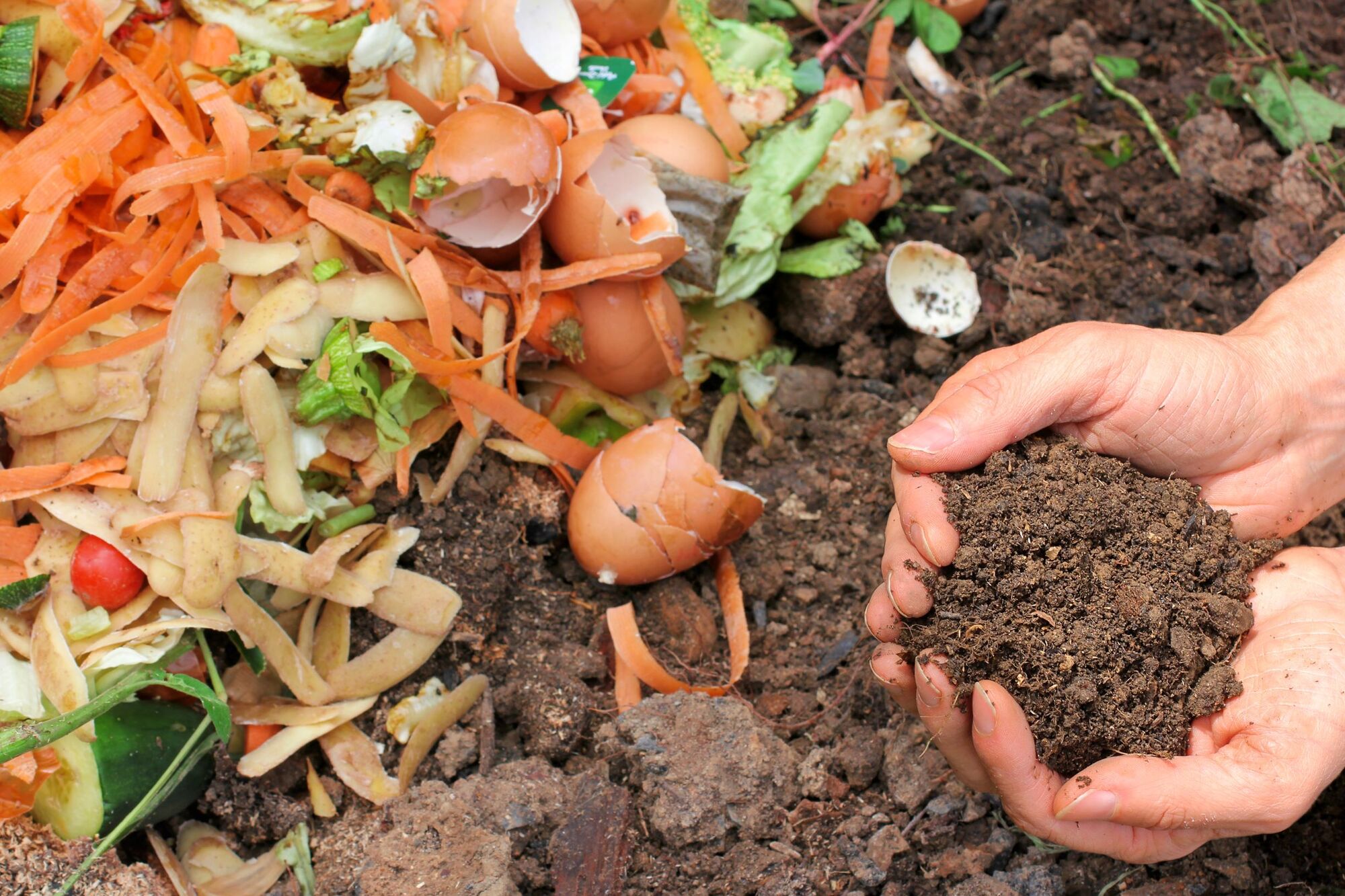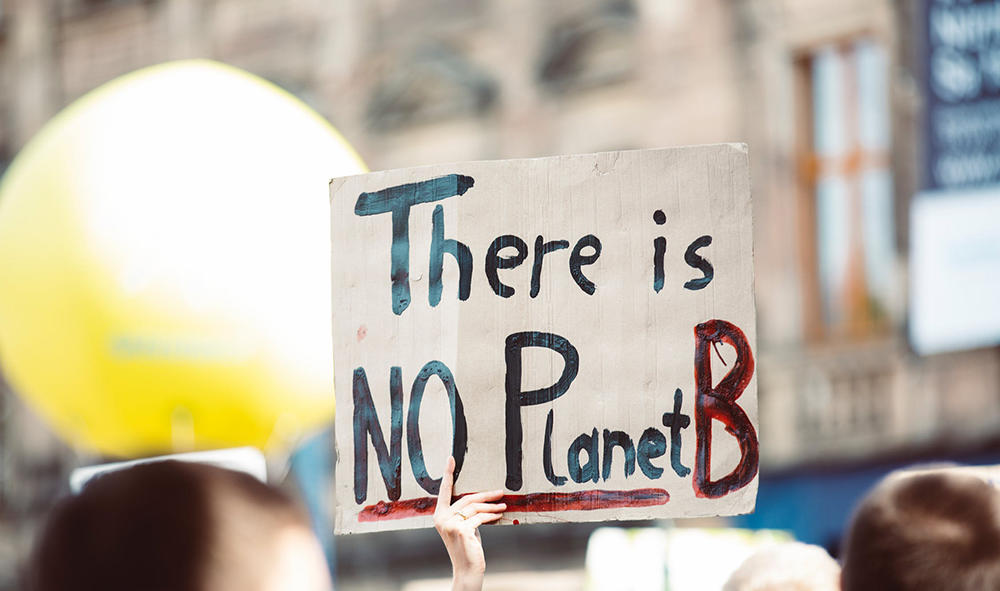World Centric x WILDCOAST / 15 minute read
The world’s oceans are vast and elusive. They cover 90% of the Earth’s habitable space, but humans have explored less than 10% of them. And, oceans are responsible for producing 50-80% of the oxygen we breathe (the majority is produced by microscopic algae known as phytoplankton). However, plastic pollution is quickly taking over - it's estimated that by 2050, our oceans will contain more plastic than fish. Where is all this plastic coming from, and how did the problem get so bad?
Ocean Plastic Starts Upstream
The United Nations’ World Oceans Day was created to celebrate the beauty of the ocean while also acknowledging the impact human actions have on them. The need for sustainable ocean management and conservation is dire. The 2017 United Nations Clean Seas Campaign estimated that there are 51 trillion microplastic particles in the ocean today, 500 times more than the number of stars in our galaxy.
All of this plastic, which can break down into micro-plastics in the ocean, releases chemicals and threatens marine life who mistake plastic particles for food. As a result, this pollution finds its way into our own food chain. It’s estimated that 80% of the world’s ocean plastics flow downstream from rivers and watersheds.
All of this plastic, which can break down into micro-plastics in the ocean, releases chemicals and threatens marine life who mistake plastic particles for food. As a result, this pollution finds its way into our own food chain. It’s estimated that 80% of the world’s ocean plastics flow downstream from rivers and watersheds.
“La Agua Negra” – “The Black Water
120 miles in total, the Tijuana River flows through Northwest Mexico, Southern California and into the Pacific Ocean. The river’s coastal estuary is made up of many diverse and sensitive habitats including beaches, sand dunes, mudflats, salt marshes, and vernal pools. Sadly, these ecosystems and public health in border region communities are under threat because of the water flows.
|
Locals call the Tijuana River “La Agua Negra”–or, “The Black Water”–due to the high levels of pollution directly correlated to the rapid and unplanned growth of Tijuana. Many migrants get stuck in Tijuana and end up settling primarily in Los Laureles, a region upstream from the Tijuana estuary (located on the U.S. side of the border). It’s estimated that there are over 60,000 people living in this settlement, but nobody knows about it because officially, it doesn't exist.
|
Community members build their homes using whatever materials they can find. several neighborhoods have deficient services or have no services - no water, trash removal, electricity or sewage system. People in the canyon are living in poverty and exposed to harmful trash and toxins. When heavy rains and water move through the canyon, they carry the debris from these settlements with it. This waste - tires, plastic bottles, chemicals, even mattresses - end up downstream in Imperial Beach California, the Tijuana Estuary and subsequently the Pacific ocean.
“Many are quick to judge these people as ‘dirty people' who just dump their trash into the river”, explains Fay Crevoshay, Communications & Policy Director for WILDCOAST.
“But what would you do if no one picked up your trash?
Where would you put it?”
Nonprofit: WILDCOAST
WILDCOAST is an international organization working with communities to conserve and protect coastal and marine ecosystems. In Mexico, WILDCOAST is capturing and recycling plastic waste from the Tijuana River before it ends up in the ocean. They installed a “trash boom” along the river which acts as a physical barrier to capture trash and prevent it from moving further downstream whilst allowing the water to continue flowing. Since January, WILDCOAST’s boom has captured over 10,000 pounds of plastic waste. They are able to recycle 93% of what is captured.
“Water doesn’t care about an international boundary. It's going to move where it needs to move, from a high elevation to a lower elevation”, explains Lisa Gilfillan, Ocean Conservation & Education Coordinator with WILDCOAST.
“As all of that water moves through the canyons predominantly in Mexico, it is being carried to the Tijuana River which empties directly into the southernmost marine protected area in California. WILDCOAST is focused on preserving our marine protected areas so of course this issue is important to us.”
|
Now, WILDCOAST is working with community members in the canyon to reduce pollution. Border Coordinator Rosario Norzagaray organizes recycling events with ECOCE, another civil organization, where people are able to exchange plastic waste for foods such as rice, beans, milk, and juice. Rosario recently implemented 15 collection points in the Los Laureles neighborhood where people can participate twice a month in the recycling campaigns. In a single month, WILDCOAST promoted the collection of 800 pounds of plastic for recycling and prevented them from ending up in the river and subsequently the ocean.
|
“Be compassionate to people. It’s easy to point the finger at them and say these people are producing all the plastic waste, but in reality they’ve likely got other major problems they’re dealing with”, explains Lisa.
“If you’re dealing with poverty and hunger and all these other social justice issues, plastic and recycling is not going to be your top priority. We need to work with communities to find holistic solutions that benefit everybody."
How You Can Help Conserve Our Oceans
- Understand the issue of plastic pollution- Take a deep dive into understanding the lifecycle of plastic, from production to disposal and how poorly that’s all managed.
- Donate to support WILDCOAST’s efforts in the U.S. and Mexico
- $25 installs buoys around a coral reef
- $75 conserves 1 miles of coastline
- $500 protects a sea turtle habitat
- $1,000 supports wetland restoration efforts
- More ocean conservation organizations that World Centric recommends:
- Blue Ventures develops transformative approaches for catalysing and sustaining locally led marine conservation.
- 5 Gyres is a leader in the global movement against plastic pollution with more than 10 years of expertise in scientific research and engagement on plastic pollution issues.
- Break Free From Plastics
- Support communities that lack the infrastructure to manage their waste. Supporting any of World Centric’s non-profit partners supports sustainability for communities.
- Sign this petition to protect 30% of oceans by 2030.
- Use your vote wisely - There are many plastic bills and legislation, like the Break Free From Plastics Act, you can support to hold corporations accountable. Learn more. Here in California, where World Centric is headquartered, there are several proposed bills tackling plastic waste reduction.
- Replace single-use plastic with reusable systems. When reusables are not an option, make sure you understand what can be recycled and composted in your community by looking up state or county guidelines.
- Find a beach cleanup event through Surfrider Foundation
- Check out some documentaries:
- The Story of Plastic (trailer). See other short films on plastics from the same creators.
- A Plastic Ocean (trailer)
- Chasing Coral (trailer)
How We're Taking Action
As a company, World Centric is working to reduce the environmental impact of the foodservice industry by creating certified compostable products made from renewable plant-based materials. Our hot and cold NoTree cups made from sugarcane paper and molded fiber utensils made from plant fibers are two examples of our commitment to innovating the most sustainable solutions to replace petroleum plastic foodservice ware.
